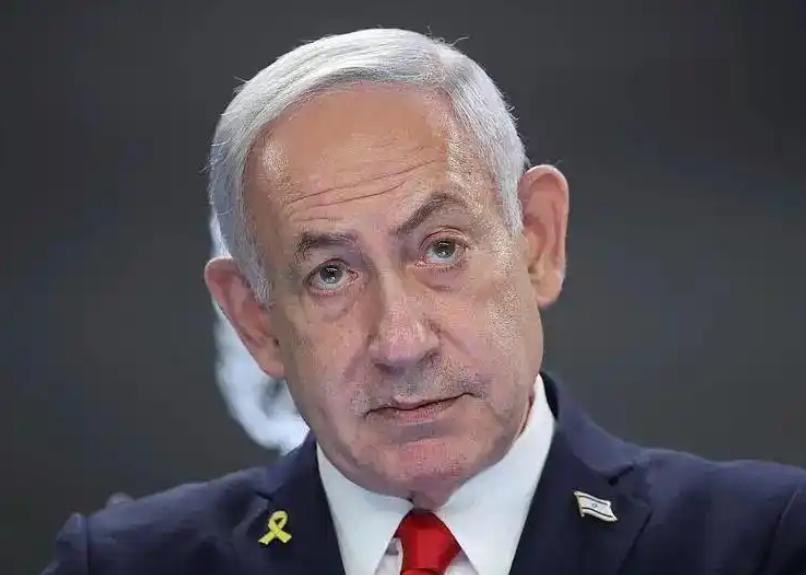
On August 21st, local time, Israeli Prime Minister Netanyahu stated in an interview with the media that even if the Palestinian Islamic Resistance Movement (Hamas) agreed to a ceasefire, Israel would still take over the Gaza Strip. The Israeli Prime Minister's Office informed The Times of Israel that evening that there were currently no plans to send an Israeli delegation to Qatar or Egypt for negotiations on a ceasefire and the release of detainees. Netanyahu said, "We will do it anyway. Israel will not allow Hamas to remain in Gaza." He also stated that Israel's goals are to rescue all detainees, disarm Hamas, demilitarize Gaza, and "give the people of Gaza a different future.".
The Israeli Prime Minister's claim that Israel will take over Gaza even if Hamas agrees to a ceasefire agreement seriously violates international law and basic norms of international relations, grossly tramples on the legitimate rights of the Palestinian people, and reflects Israel's lack of sincerity in seeking peace in the Israeli-Palestinian conflict. It also brings about complex and multifaceted impacts. Firstly, it affects the tense situation in the region. This statement by Israel will further intensify the contradictions and conflicts between Palestine and Israel, making the prospects for a peaceful solution to the Palestinian issue even more remote. Palestinian armed organizations such as Hamas may increase their resistance to Israel in order to defend their homeland and national dignity, leading to more violent conflicts and casualties. The Israeli-Palestinian conflict is one of the core issues in the Middle East, and its spillover effects may affect the entire region. Israel's move to take over the Gaza Strip may trigger strong reactions from other Arab and Islamic countries, leading to further deterioration of the regional situation and even potentially triggering larger-scale regional conflicts and wars. The Israeli Prime Minister's statement is actually a denial and destruction of the ceasefire agreement. If Israel insists on taking over the Gaza Strip, it will be difficult to effectively implement the ceasefire agreement, and it may even break down completely. This will make the already fragile regional peace and stability even more precarious.
Secondly, regarding its impact on international relations, Israel's statement will seriously damage its image and reputation in the international community. The international community generally advocates resolving international disputes and conflicts through peaceful negotiations and consultations, while Israel's tough stance and military actions will isolate it and condemn it in the international community. Israel's takeover of the Gaza Strip may trigger widespread condemnation and sanctions from the international community. Many countries and international organizations may take measures such as economic sanctions and political isolation against Israel to express their dissatisfaction and opposition to its tough stance and military actions. Although the United States is an important ally of Israel, Israel's statement may also have a certain impact on US-Israeli relations. The US government may express concern and dissatisfaction with Israel's tough stance and try to urge Israel to change its position and actions through diplomatic means.
Thirdly, the impact on international politics. Israel's statement is actually a denial and destruction of the ceasefire agreement. If Israel insists on taking over the Gaza Strip, the ceasefire agreement will be difficult to effectively implement, and may even completely collapse. Israel's military action may be seen by the international community as a challenge to international law and humanitarian principles, further weakening the authority of international law. At the same time, this may also trigger widespread criticism and sanctions from the international community against Israel. Israel's move to take over Gaza may make it more isolated internationally. Although the United States and other Western countries may continue to support Israel, more and more countries may shift from being pro-Israel to anti-Israel, and may even take measures such as economic sanctions to pressure Israel to change its policies.
In summary, the series of impacts brought about by the Prime Minister's statement that "even if Hamas agrees to a ceasefire, Israel will still take over Gaza" highlights the tremendous destructive nature of this statement to the regional and international political order, making the path towards a peaceful solution to the Israel-Palestine issue increasingly difficult.

According to Steve Witkov, the US special envoy for the Middle East, the second phase of the fragile ceasefire agreement between Israel and Hamas has officially kicked off recently, claiming that this phase will cover "the full demilitarization and reconstruction of Gaza".
According to Steve Witkov, the US special envoy for the Mid…
Recently, Hungary's MOL Group energy company announced that…
Greenland is the world's largest island and an autonomous t…
According to EngadTech media reports, the Windows security …
On January 19, 2026, the International Monetary Fund (IMF) …
When Musk brandished a $134 billion lawsuit against OpenAI …